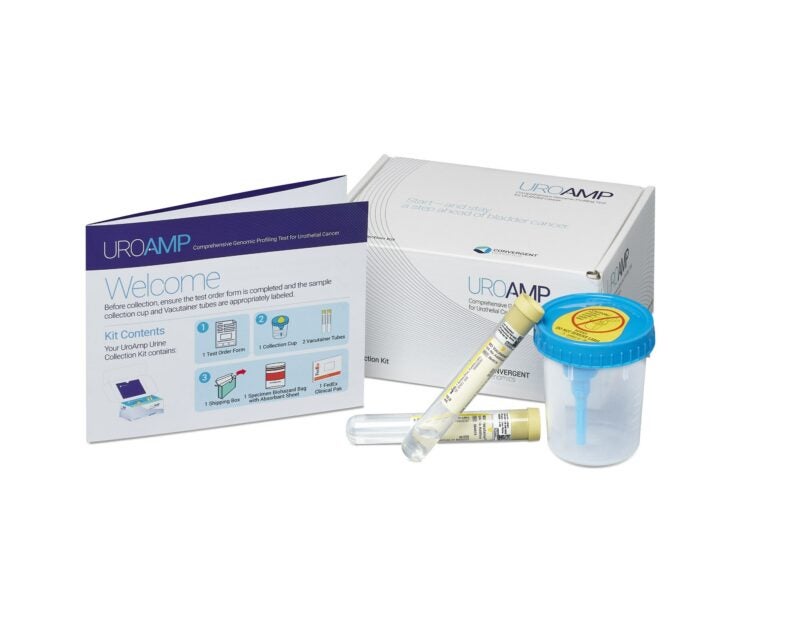
Convergent Genomics announced that its genomic urine test, UroAmp, has supported the prediction of bladder cancer almost 12 years before the emergence of clinical signs and symptoms and way before a diagnosis with cystoscopy in a study.
The UroAmp test utilises next-generation Deoxyribonucleic acid (DNA) sequencing and machine learning to evaluate urine for mutations across 60 genes associated with bladder cancer. It also measures the entire genome.
In the study, the team of researchers focused on a subset of 10 genes that has the highest predictive power for a future bladder cancer diagnosis.
UroAmp was assessed in a case-control study with urine samples from 96 control subjects and 70 bladder cancer patients.
As per the results, the genomic urine test had a sensitivity of 86% in predicting new tumours and 71% sensitivity overall. The researchers found that 94% of people tested negative for bladder cancer and do not have the disease.
Additionally, a second study studied the genomic urine test using a case-control design of the Golestan Cohort Study, which consists of urine samples from over 50,000 patients taken up to 12 years ago.
Convergent Genomics said that the test predicted future cancer in 66% of cases correctly with a specificity of 94% in urine from 29 patients who developed bladder cancer. The results were compared with 98 control subjects who never developed the cancer.
Furthermore, UroAmp’s sensitivity increased to 90% when patients were diagnosed within five years of the initial collection of urine.
Convergent Genomics founder and CEO Trevor Levin said: “By leveraging the latest machine learning and next-generation DNA sequencing, we can non-invasively measure with exceptional accuracy the mutations acquired in bladder cells over our lifetimes.
“This discovery could open the ultimate window of opportunity for highly targeted screening, therapeutic and behavioural cancer prevention.”
According to the company, UroAmp’s genomic approach was found more accurate than other methods of detection and monitoring in previous studies.
UroAmp is also said to offer more insights into a patient’s prognosis and chances of recurrence than cystoscopy alone.
The study was funded by the National Cancer Institute via a Small Business Innovation Research (SBIR) grant.






